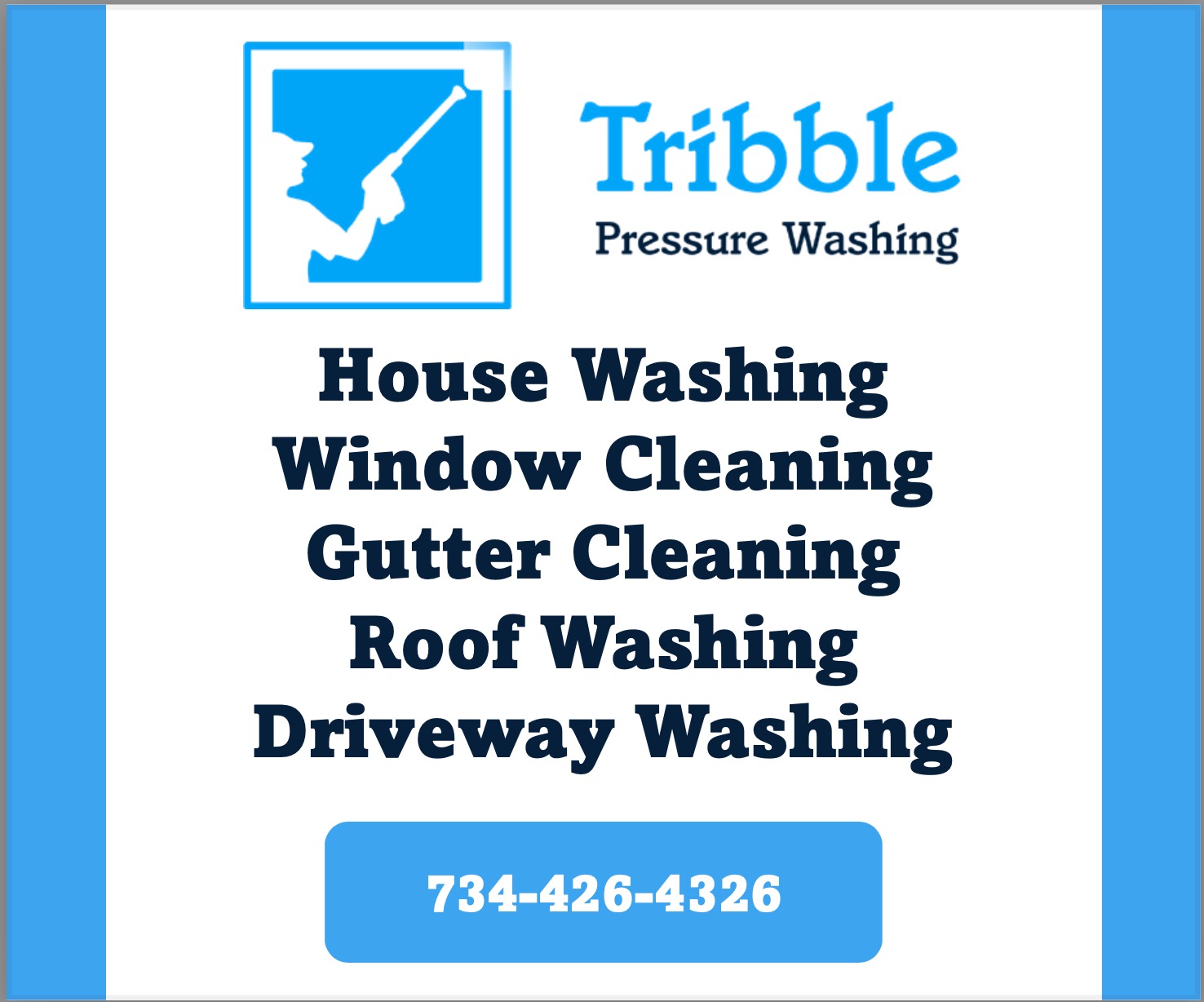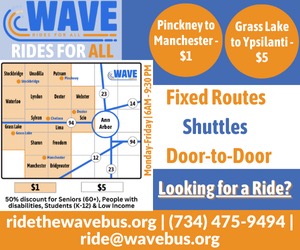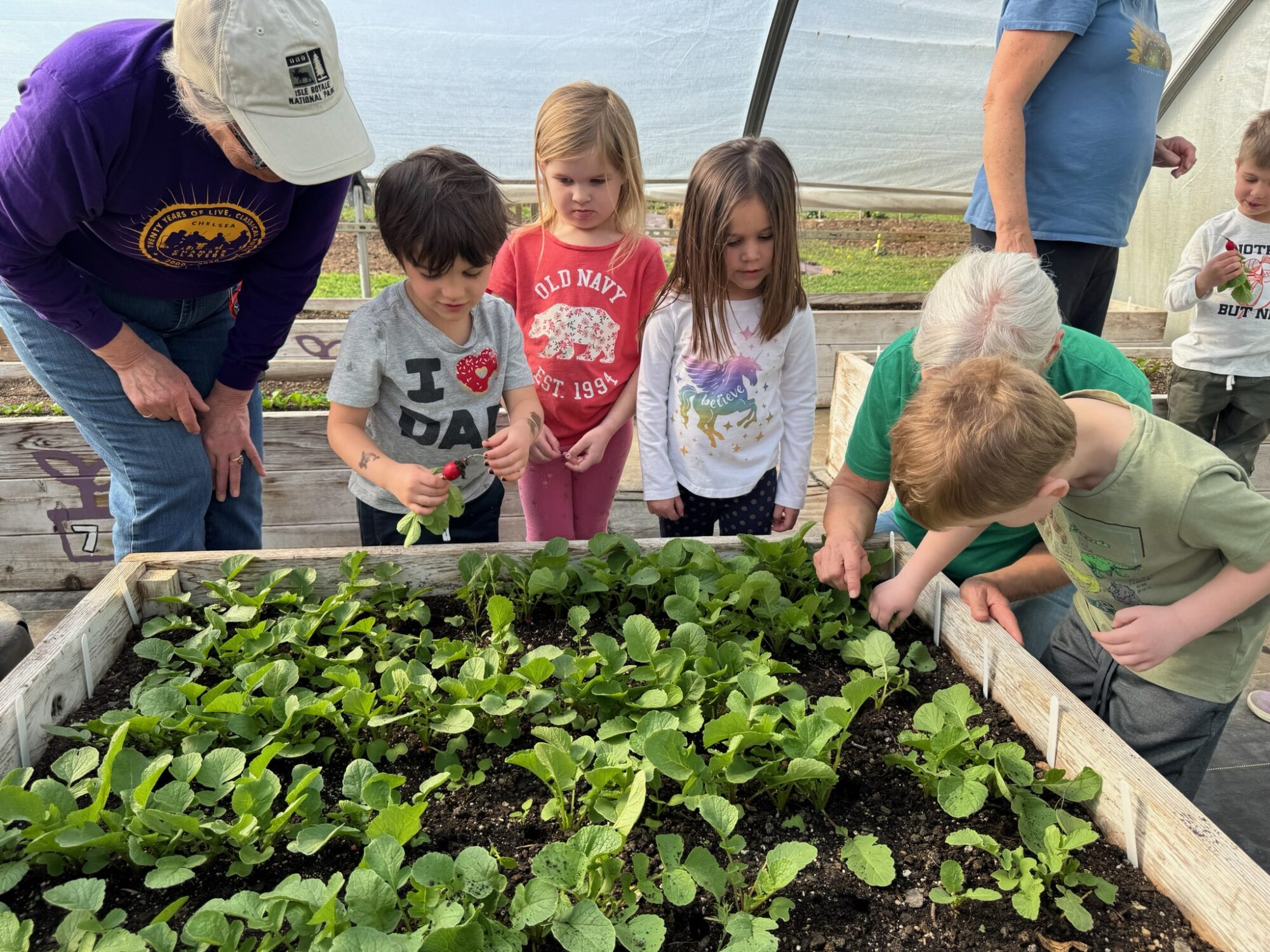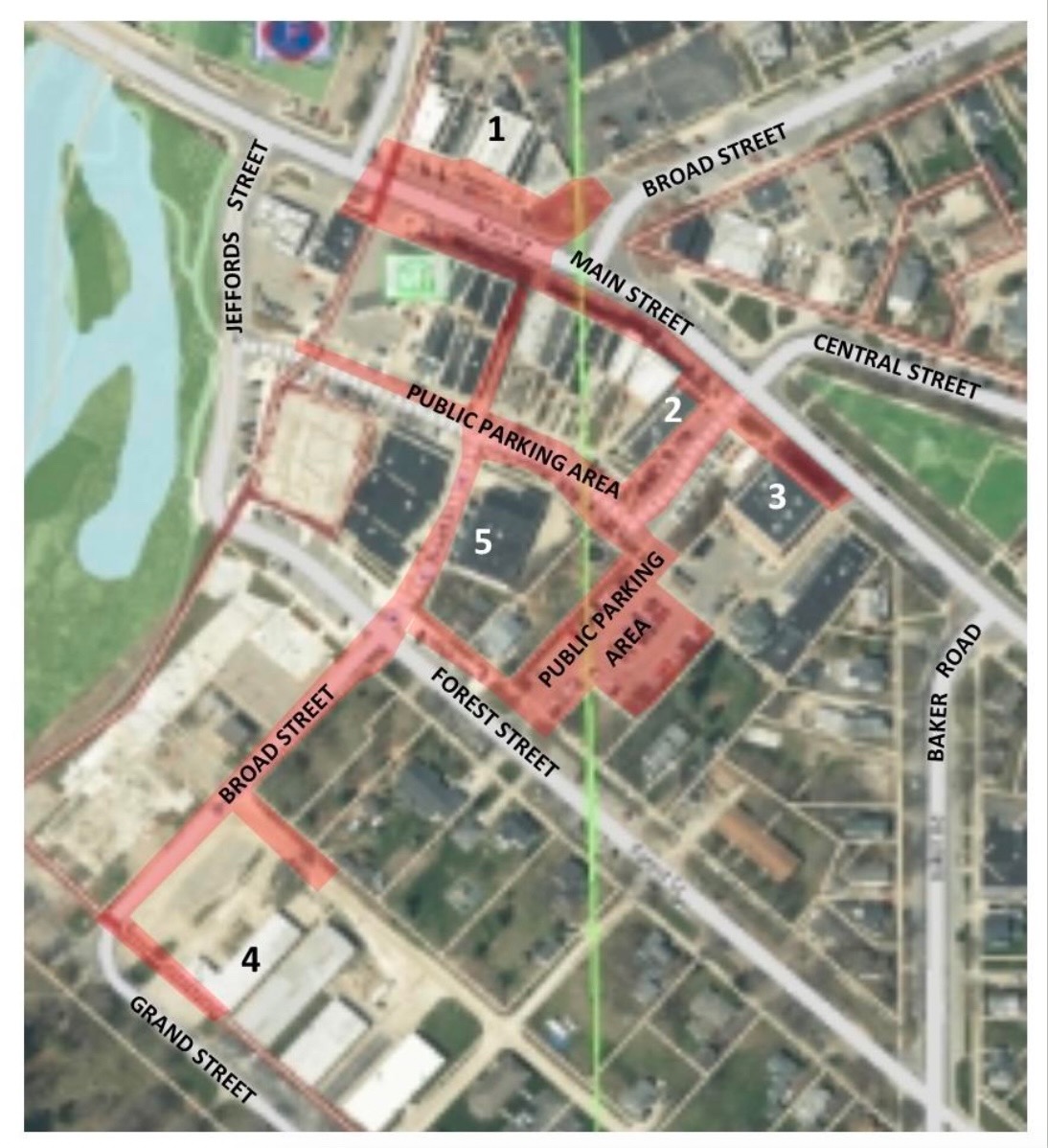“The people, the average voter is afraid of math, doesn’t understand the math or the long term cost to ownership.”
As the November election draws nearer, voters are eager to learn more about the four candidates hoping to secure one of three available seats on Saline’s City Council. To provide insights into their plans for the city’s future, The Sun Times News asked each candidate to share their perspectives on key issues such as development, communications and transparency, and leadership qualities. Candidate responses to the first three questions are below. Responses to additional questions will be published next week.
Q: The council has recently discussed housing developments like apartments on Michigan Ave and a community on the property at the intersection of Saline-Ann Arbor and Waterworks. What is your stance on balancing new, high-end developments with the need for diverse options and attainable housing in Saline?
Janet Dillon
Balancing high-end developments with the need for diverse and attainable housing in Saline is crucial for maintaining community inclusivity and long-term growth. While high-end developments can bring increased tax revenues, they can also create socioeconomic divides. A diverse range of housing options ensures that people of varying income levels, from young professionals to families and seniors, can afford to live in Saline.

I continue to explore and support avenues in which Saline can create a more diversified and attainable housing inventory. Density is a key element that plays a significant role by influencing the types, availability, and affordability of housing options.
The City of Saline through action by City Council has taken a significant step forward in varying its housing stock goals by creating its Auxiliary Dwelling Unit (“ADU”) ordinance. ADUs allow for smaller secondary residences in certain zoning districts within the City. The proposed development on Saline-Ann Arbor Road & Waterworks looks to maximize its footprint on the property with high density vertical housing.
As the City explores the future of its downtown and surrounding area, mixed used zoning will inevitably play a large role. Mixed use generally combines residential, retail and commercial space. This mechanism also can help integrate high-end properties with more attainable and varying housing options.
Dean B. Girbach
Council encourages attainable housing, however, difficulty arises when acquiring additional land or repurposing land within our city limits. Reality means our city and surrounding townships must consider density, alternate types of development, transportation considerations and determine how our community will support such changes. Higher end housing continues to be a trend for a number of our developers as that is what the market is demanding. Our hope is to further convince future developers there is demand and profit for smaller homes and apartments.

Regrettably, as we discuss options for attainable and affordable housing, many residents continue to view such options as being substandard and often speak out against them. As part of the Planning Commission, I will continue to encourage different alternatives including planned unit developments, State and Federal programs, and other acceptable alternatives. The city has been successful in implementing a few housing programs such as the PILOT program (payment in lieu of taxes) while others need to be further investigated. Still, although adding new options is important, maintaining existing housing stock is just as important. Council must fully support the city’s rental inspection program. Saline must ensure substandard rental housing will not be tolerated for any resident, especially our most vulnerable population.
Brian Cassise
With regard to attainable housing, I am pro-free markets and a believer in if you build it, they will come. We are not Ann Arbor but we are a neighbor. Developers should build what will sell. My vision and the vision of others may not always align however Saline has an aging population. We need to understand that and develop plans to address mobility needs and challenges of the future. New building projects can address the needs of not just an older population but factor in the wants of younger generations. Example is single story homes suitable for single families or single people.

We have to accept that most decisions are based on financial considerations. The average person doesn’t build a custom home or even follow basic financial principles. People rent out of convenience. People go to Starbucks multiple times a day. People make quick decisions without considering the long term implications. People do what is easy versus what is right. People often want others to do for them because they are too busy or don’t have enough information to form a rational counterargument.
The city is no different. The government is often financially motivated – what brings in tax dollars. Why, one can ask? It’s not greed or corruption but an unwarranted desire to provide more and more. Answering the voice of the voter to provide more services or stuff without understanding the long term implications. These simple changes show up on our ballots as millages, a rate it x per $1000 of home value.
The people, the average voter is afraid of math, doesn’t understand the math or the long term cost to ownership. Is it worth it? Sometimes maybe, often times it’s not. Everyone would love to drive a Mercedes but our budgets support a Yugo. This push and pull relationship with personal finance and the voice of the community demanding more “stuff” needs to be balanced and prioritized. As a council member, I will ask the tough questions to make logical choices. Spend wisely and invest in areas that impact everyone!! Saline is a prosperous community that needs to balance our wants with our needs. My conservative financial views are lacking in council.
Nicole Rice
Diversity of types of housing is the key to smart growth in the city. This region is rich in technology and industry, has multiple world-class Universities, and we have the best school district in the state. Our city is very attractive to folks in all of these sectors. People want to live here!

What we must do is find smart ways to develop different types of housing that serve different needs, while also fitting into our goals as a city, as seen in our recently update Master Plan. By working with townships and developers to annex and develop lands in resourceful ways, we can grow our tax base without overcommitting our services. The lands are going to be sold and developed regardless. It’s best that the city work collaboratively to do so. I think our relationships with the townships are getting stronger and I think with additional, open communication with current residents, we can find a common vision.
Q: Citizens often attend council meetings to comment on agenda items but leave frustrated when they feel their comments did not impact the final vote. Many participants are unaware that the most substantial discussions happen much earlier in the council’s process than the final meeting where a vote takes place. How do you plan to enhance transparency and increase community participation in long-term decision-making processes, particularly regarding the city’s projects, developments, and services?
Brian Cassise
For the viewpoint or perception that counsil lacks public engagement and transparency is a multifaceted issue. I have been to many council meetings and have left more frustrated than before going to the meeting. As with most of life, I have a choice. I could moan and grown about the problem or I can do something about it.
My doing something about it, is taking the leap of faith to run for Saline City Council. It’s the right thing to do. I’m not a politician. I’m an engineer, a problem identifier, and solution implimentor. I’m at a point in my life and career where I can make a difference. I am able to apply my engineering mindset and problem solving aptitude to enhance the community that I live in and love. The city has made a lot of progress in better communication in local events. Example this summers road projects. Emails, mailings, news papers and other avenues. I will continue to enhance communication and collaboration with everyone as we are all neighbors.
Dean B. Girbach
I think our city works diligently towards transparency. Our greatest disconnect is convincing citizens to take advantage of sources beyond Saline Posts on Facebook. The city records and broadcasts both Council and Planning meetings on its cable channel or YouTube presence. Various web tools allow individuals to see agendas and minutes in advance for all commissions and boards. Both Minutes on Demand and ClearGov have a dynamic search tool to look up topics.
Recently, council and staff have taken advantage of new options, including M-Live and the Sun Times, where a more traditional approach allows yet another medium for those that may not have Internet access. True engagement requires engaging with individuals one-on-one. I strive to seek out opinions and remain informed while asking the relevant questions and requesting information during open meetings. Hopefully asking the questions and identifying issues of which residents are generally concerned.
Nicole Rice
As part of my work in helping develop the city’s new strategic plan, I pushed for the development of a comprehensive communications plan. This will serve as guidance toward communicating with the community, providing better access to information, setting standards for feedback and followup, as well as preparing for future communication needs. I believe this plan, and its execution, will be key to moving the city forward in building relationships with everyone it serves and, ultimately, helping to complete large projects in a transparent and accessible manner.
With my experienced background in both public and internal communications, and as part of a City-led working group, I will help assure that this plan can be easily implemented by city staff. This, in turn, will help my job as a city councilor! I will have more time to spend listening and receiving feedback about the information the city has provided, which I can then use in my decision-making. As it stands right now, I have to spend far more time getting information out to the community than I have time to take information in. The latter being the most important responsibility I have as a councilor.
Janet Dillon
Being open about the decision-making process fosters trust and ensures accountability. Transparency involves sharing details, thought processes, analysis and projections which is the rationale behind votes. Ensuring that community members have access to the information used to make decisions should be a baseline expectation.
The City has made great gains with increasing the availability of information to better inform community members. A redesigned City website, free online platforms that community members can subscribe to such as Clear-Gov, My Water Advisor app, Saline 411 text messaging, monthly e-newsletters, a quarterly print and email FYI newsletter, DPW newsletters, weekly Saline Shorts videos, Townhall meetings, various social media networks, and an online reporting tool.
In order for there to be a constructive dialogue, community members must also be accountable to the process. Generally, the room is empty during City Council work and regular meetings. The City provides an opportunity for community members to email in public comments but seldom do we receive any.
I will continue to reach out to community members and stakeholders to share information and listen to and learn about their needs, comments, concerns, and ideas to ensure those involved feel involved and heard. Expanding my outreach efforts to inform residents about the stages of policy development—planning, committee discussions, and public input periods—so they understand when and how to get involved will be a personal benchmark moving forward.
Q: When faced with difficult decisions, what core personal and professional values guide your vote and how do these values help you prioritize the needs of different community groups? How will you demonstrate support for projects or measures that were approved even if/when you voted against them?
Dean B. Girbach
My core values have always been accountability and forthcoming with information. I’ve served in a number of roles where I was responsible for assuring information is valid, risks are considered and honesty takes precedence. My 30+ years of work experience has always involved meeting expectations where I must present as accurate and reliable information as possible and available. Further I have personally experienced many concerns over the years in terms of fairness and equity in dealing with the city as a private citizen. I will continue to push for clear considerations and understanding, especially for those unfamiliar or treated unjustly.
Our Council truly does benefit for the most part with being on the same page for most issues. While I will always vote my conscience, I have historically accepted outcomes fully. It is important the vote of a majority of Council continues to be the heart of our form of governing. Where I become concerned is when members of Council vote based on misunderstanding or considering the next campaign. I have voted for a number of projects where having full support of our community was not possible, although absolutely necessary to achieve adequate services, meet budgetary constraints, and/or address health and safety matters.
Nicole Rice
I have voted against the grain a couple times now in my first term as councilor. And, I truly believe if you asked my colleagues, despite those dissents, I have supported the ultimate decision each and every time. I am known to speak from the heart and every action I take comes from the position of what I believe is best for everyone. That is the value I carry with me in everything I do.
But I recognize that I am only one person! A vote is just one moment in time. All of the other time I spend as a councilor is focused on what’s currently happening or what’s about to happen, and how can I use what I know and the skills I have to ensure whatever it is, it’s the best it can possibly be.
Janet Dillon
I have always prided myself on a foundation of being hardworking, trustworthy and engaged. Being prepared, researching issues, asking questions and truly listening to learn, continue to guide my decision making.
Some decisions are easy, they are agreed upon to be in the best interest of the City and community. Then there are decisions that divide the community. A recent example would be the issue as to the closure of South Ann Arbor Street. I have long been a proponent of creating a public gathering space in Saline. When the City first closed the street to create a public gathering space to aid in the revitalization of downtown restaurants and businesses, it was well received and successful. It was a solid solution to restrictions due to the pandemic.
As the community emerged from the pandemic and people started returning to work, students returned to school, and safety protocols were lessened, the City decided to reevaluate the closure of the street. There were many facets to the conversation including a recommendation by the Fire Chief related to a monumental fire safety concern when the road was closed. After many discussions, deliberations, Council made the vastly unpopular decision to not allow the road to be closed in that particular manner.
City Council and City Staff worked diligently with community stakeholders to find other means to support our businesses and community. Conversations and compromises yielded a positive result which has allowed for the road to be closed for certain durations with the understanding that fire equipment could easily access the area without undue delay or obstacles. We also created a temporary public space in a downtown parking lot to use for public gatherings like the Thursday night music series. Together we have created some immediate solutions which provide breathing room for continued long term planning.
Even when voting against a project or measure, it’s essential to respect the democratic process and work to implement the approved policy for the benefit of the community. I strive to always rely upon my personal and professional values like integrity, equity, accountability, and sustainability to shape how I approach difficult decisions and balance community needs. These values ensure that even when voting against a measure, I can still contribute to support its successful implementation for the greater good of the community.
Brian Cassise
The primary reason I should be elected to council is based on my demonstrated decision-making abilities and my fiscally responsible approach.
I’m the finance chair of a business partnering group at work. I’m the treasurer of my HOA. I’m an avid saver and investor for the future. I’m frugal but not cheap! I take personal responsibility for my finances, my life and I am not a victim.
When making decisions with tax payers money, I will make the decision as if it was my own. That assessment will be based on facts.
- Is this a need or a want? If a want, probably not going to support it. If it’s a need, are the costs reasonable and by not acting quickly will the costs be higher in the future? I’m proactive.
- When spending money, have all solutions been considered? Has the voice of our residents been heard and has the most reasonable and logical solution been selected for implementation. I have the ability to break down complex problems, identify the root cause and implement long lasting countermeasures.
- I follow a heirarchy of needs approach – does this impact everyone – yes or no? If yes, let’s work for a solution. If no, asking the question of why are we spending any time on the topic. If we can’t get the basics right, the rest doesn’t matter. We all need clean water, functioning waste water disposal and minimal governmental intrusion.
- Whether I get my way or not, I am a team player. I’m a leader and results driven. I utilize decision matrices to weigh pros and cons, also use this as a visual tool to better communicate with others. It’s simple and logical.






 8123 Main St Suite 200 Dexter, MI 48130
8123 Main St Suite 200 Dexter, MI 48130


